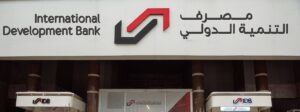- The US has imposed sweeping sanctions on Rapid Support Forces (RSF) commander Mohammad Hamdan Daglo, known as Hemedti, for gross human rights violations in war torn Sudan.
- Also hit are seven RSF-owned companies operating in the UAE for their role in fueling the ongoing conflict.
- These measures underscore the US’s commitment to promoting accountability and supporting Sudan’s quest for peace and democracy.
The US has intensified its efforts to hold perpetrators of Sudan’s humanitarian crisis accountable by sanctioning RSF leader Mohammad Hamdan Daglo, widely known as Hemedti.
Accused of orchestrating systematic atrocities, Hemedti now faces sanctions for his direct involvement in gross human rights violations, including mass rapes committed by soldiers under his command in Darfur region.
The US Department of State, in a statement released Tuesday, revealed that Hemedti has been designated under Section 7031(c) of the US law. This designation bars him and his immediate family from entering the US.
“Hemedti’s actions have blatantly disregarded international humanitarian commitments and contributed to unthinkable suffering in Sudan,” the statement noted.
Hemedti, seven RSF-owned companies in UAE targeted
Also hit by the santions were seven RSF-owned companies based in the United Arab Emirates (UAE). These firms, alongside one individual, have been implicated in procuring weapons for the RSF. The targeted companies are said to play a critical role in sustaining the RSF’s operations, enabling the group to carry out its atrocities.
Capital Tap Holding L.L.C. (Capital Tap Holding), based in the United Arab Emirates (UAE), has provided money and weapons to the RSF, the State Department noted. “The United States continues to call for an end to this conflict that is putting innocent civilian lives in jeopardy,” said Deputy Secretary of the Treasury Wally Adeyemo. “The Treasury Department remains committed to using every tool available to hold accountable those responsible for violating the human rights of the Sudanese people.”
One of the seven firms on target is Capital Tap Holding L.L.C. (Capital Tap Holding), a UAE-based holding company that manages 50 companies over 10 countries. This firm, under the owenership and leadership of Abu Dharr Abdul Nabi Habiballa Ahmmed (Abu Dharr) is being accused of providing the RSF with money and military equipment.
The other Capital Tap Holding subsidiaries on the radar of US State Department are: Capital Tap Management Consultancies L.L.C. (Capital Tap Management) and Capital Tap General Trading L.L.C. (Capital Tap General), Creative Python L.L.C., Al Zumoroud and Al Yaqoot Gold & Jewellers L.L.C., Al Jil Al Qadem General Trading L.L.C., and Horizon Advanced Solutions General Trading L.L.C.
The sanctions aim to disrupt the financial networks that have allowed the RSF to perpetuate violence. “This action is part of our continued efforts to promote accountability for all warring parties responsible for fueling this conflict,” the statement emphasized.
Sudan war: the worst in the country’s history
Since April 15, 2023, the conflict between the Sudanese Armed Forces (SAF) and the RSF has spiraled into one of the world’s largest humanitarian catastrophes. Over 30 million people in Sudan now require humanitarian assistance, with 638,000 experiencing famine—the worst in the country’s history. Tens of thousands have lost their lives in the violence.
The RSF and its allied militias stand accused of genocide, ethnic cleansing, and other war crimes. Investigations by the US in late 2023 found that RSF-aligned forces have systematically murdered men, boys, and infants based on ethnicity.
Women and girls from targeted ethnic groups have suffered brutal sexual violence. Civilians fleeing the violence have been attacked, and those left behind are often denied access to lifesaving supplies.
Holding perpetrators accountable
The US Department of State has stressed that its actions against Hemedti and RSF-linked entities do not imply support for the SAF. Both warring factions, it argued, bear responsibility for the ongoing violence and lack legitimacy to govern Sudan.
“Our aim is not to pick sides but to hold all perpetrators accountable,” the statement clarified. The US remains committed to supporting Sudanese civilians in their aspirations for a peaceful, democratic future. To this end, the United States announced a $30 million package in December 2023 to bolster Sudanese civil society actors.
Violations of humanitarian commitments
Hemedti’s RSF has flagrantly disregarded international agreements, including the 2023 Jeddah Declaration of Commitment to Protect the Civilians of Sudan and the 2024 Code of Conduct under the Advancing Lifesaving and Peace in Sudan initiative. These frameworks were established to ensure unimpeded humanitarian aid delivery and prevent war crimes such as sexual violence.
However, RSF forces have repeatedly violated these agreements, committing heinous acts that continue to devastate the Sudanese population. By targeting Hemedti and the RSF’s economic network, the US aims to pressure the group into halting its atrocities and engaging in peace efforts.
Global implications of US sanctions
The sanctions on RSF-owned companies in the UAE highlight the international dimensions of the Sudan conflict. The UAE’s role as a hub for the RSF’s financial and logistical operations places it under scrutiny. By targeting these networks, the US sends a strong signal about its commitment to cutting off resources that fuel conflicts beyond its borders.
The move also underscores the growing importance of economic sanctions as a tool for international diplomacy. By freezing assets and restricting access to financial systems, the US hopes to weaken the RSF’s ability to sustain its operations.
Amid the grim realities of the Sudan war, the US sanctions offer a glimmer of hope for the country’s future. By holding perpetrators accountable, the international community reinforces its support for Sudanese civilians striving for a peaceful and inclusive democratic transition.
Read also: Refugee Crisis in Chad as War and Hunger in Sudan Drive Thousands Across Border




